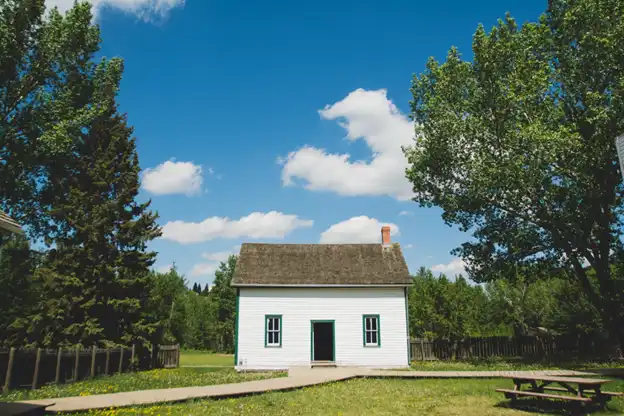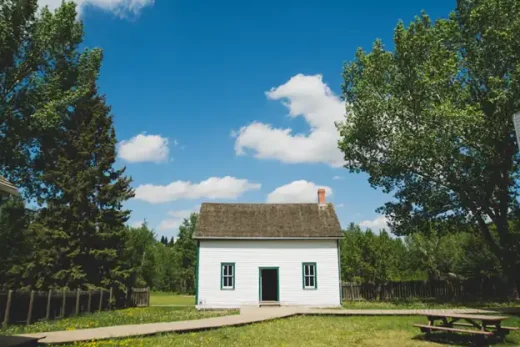House hunting guide: how to start a home search, Buying property, Real estate agents
House Hunting Guide: How To Start Your Home Search
10 December 2024
Looking for your dream home can be as thrilling as it is overwhelming. Whether you’re eyeing the cozy charm of suburban neighborhoods or browsing houses for sale in San Miguel de Allende, starting your home search the right way can make all the difference. In this guide, we’ll walk you through everything you need to know—step by step. Let’s dive in.
Why Starting Your Home Search Right Matters
Picture this: you fall in love with a house online. You can already see your furniture in the living room. Then, you discover it’s way out of your budget—or sold before you even have a chance to visit. Frustrating, right?
Starting your home search with a clear plan helps avoid those disappointments. You’ll know what to expect, what to prioritize, and how to make decisions confidently. Plus, it can save you time and money.
Ready to start? Let’s break it down.
1. Define Your Priorities
The first step in finding your dream home is understanding what matters most to you. Think of it as creating a blueprint for your future living space.
Know Your “Must-Haves” vs. “Nice-to-Haves”
Start with the basics. Do you absolutely need three bedrooms? Is a garage non-negotiable? Write down the things you cannot live without. These are your “must-haves.” Next, think about the extras that would make your life more comfortable but aren’t dealbreakers—like a pool, a walk-in closet, or a fancy kitchen island. These are your “nice-to-haves.”
This list will help you stay focused and avoid getting distracted by features that look appealing but don’t truly align with your needs. It’s a game-changer when you’re comparing multiple properties.
Determine Your Ideal Location
Your dream home isn’t just about the house itself. The location plays a huge role in your day-to-day happiness. Do you want to be close to work, top-rated schools, or vibrant nightlife? Maybe you’re drawn to a picturesque town with a strong sense of community, like San Miguel de Allende. Consider factors like commute times, local amenities, and even the vibe of the neighborhood.
Think about whether you prefer a more suburban setting with green parks and quiet streets or a lively urban area filled with shops and restaurants. Your choice of location will significantly impact your quality of life, so choose wisely!
Understand Your Lifestyle Needs
Think about how you live your life. Are you someone who loves to host friends and family? Then, you might want an open floor plan and a spacious dining area. If you work remotely, a dedicated home office is probably essential. Tailor your search to reflect what’s most important for your lifestyle now—and in the future.
Consider whether you want a home that’s easy to maintain or one that’s a bit more hands-on with gardening and upkeep. This will also impact your decision-making, especially when comparing newer homes with older ones.
2. Establish Your Budget
Once you’ve outlined your priorities, it’s time to talk numbers. A realistic budget will prevent you from falling in love with homes you can’t afford and help you focus on properties that fit within your means.
Calculate Your Affordability
Start by looking at your monthly income and expenses. Use a mortgage calculator to estimate how much you can comfortably spend on a monthly payment. A good rule of thumb? Your housing costs (including mortgage, insurance, and taxes) shouldn’t exceed 28-30% of your income. Don’t forget to leave room for savings and unexpected expenses.
The more accurate you are with your calculations, the better your chances of avoiding stress during the home-buying process. Consider your current debts, utilities, and lifestyle to make sure the mortgage fits into your budget.
Secure Mortgage Pre-Approval
Getting pre-approved for a mortgage is one of the smartest moves you can make. It gives you a clear idea of how much you can borrow, and it shows sellers that you’re a serious buyer. Pre-approval involves a lender reviewing your credit, income, and assets, so be prepared to provide documentation. Trust us, this step will make the entire process smoother.
If you’re unsure about how much you can borrow, consult with a lender who can help you understand your options and ensure you’re looking at homes within your price range.
Account for Additional Costs
When budgeting, it’s easy to focus only on the purchase price. But don’t forget about additional costs like closing fees, property taxes, homeowner’s insurance, and ongoing maintenance. These expenses can add up quickly and should be factored into your financial plan.
For example, closing costs can range from 2-5% of the home’s purchase price, and taxes vary by location. Make sure you know what these will be before signing any paperwork. This way, you won’t be blindsided by extra expenses.
3. Research the Real Estate Market
Understanding the market you’re buying into is essential for making smart decisions. A little research goes a long way.
Understand Market Trends
Take the time to learn about the current state of the housing market. Is it a buyer’s market, where there’s less competition and more negotiating power? Or a seller’s market, where homes are selling quickly at top dollar? Knowing this will help you plan your approach and set realistic expectations.
If you’re buying in an area like San Miguel de Allende, you’ll want to know whether prices are trending up or down. A competitive market means you may need to act fast, while a slower market could offer room to negotiate.
Compare Prices in Your Desired Area
Look at comparable properties in the area you’re interested in. What are similar homes selling for? Are there certain neighborhoods that offer more value for your money? This research will help you understand what’s reasonable—and what’s overpriced.
Keep in mind that the prices of homes can vary significantly depending on the neighborhood, the property’s condition, and the amenities it offers. Get a good sense of what’s normal in your desired area before you start making offers.
Study the Timing of Your Purchase
The time of year can impact your home search. Spring and summer are typically busy, with more homes on the market but also more competition. In fall and winter, you might find fewer listings but better deals. Consider what timing works best for your situation.
If you’re willing to wait for the right property, shopping during the off-season might give you more negotiating power. However, if you need to buy quickly, keep in mind that peak season can be a more competitive—and stressful—time.
4. Work with Professionals
Buying a home is a team effort. Surrounding yourself with the right professionals can make the process much less stressful.
Find a Trusted Real Estate Agent
A skilled agent can be your greatest ally. They’ll help you find properties that match your needs, schedule showings, negotiate on your behalf, and guide you through the entire process. Look for someone with local expertise, excellent communication skills, and strong reviews.
Ask your potential agent questions to ensure they’re a good fit. How familiar are they with the area you’re interested in? Do they have experience with the type of property you want? The more aligned they are with your goals, the better.
Consider Other Experts (Inspectors, Lawyers, etc.)
Beyond your real estate agent, you may need other professionals like home inspectors, appraisers, or real estate attorneys. These experts can uncover potential issues with a property and ensure everything is legally sound. Their insights can save you from costly mistakes.
For example, a home inspector can find hidden issues like plumbing problems or roof damage, while a real estate attorney ensures that the purchase contract protects your interests. Don’t hesitate to bring in the experts—it’s worth the peace of mind.
5. Narrow Down Your Options
With your team in place, it’s time to start exploring homes.
Use Online Tools for Research
Real estate websites are a great place to start. Filter listings by price, location, and features to zero in on homes that meet your criteria. Save your favorites and take notes on what stands out.
Take advantage of tools like virtual tours and neighborhood reviews to get a deeper understanding of potential homes. It’s a convenient way to narrow your choices before scheduling in-person visits.
Attend Open Houses
Walking through a home in person is invaluable. It helps you get a feel for the space, the flow, and even the neighborhood. Don’t be afraid to ask questions while you’re there—this is your chance to gather details.
House hunting guide Conclusion
Starting your home search doesn’t have to feel like an uphill battle. With a clear plan, a realistic budget, and a trusted team of professionals, you’re well on your way to finding the perfect place to call home. Each step, from defining your priorities to making an offer, brings you closer to that moment when you step through the door of your dream house and say, “This is it.”
The best part? You don’t have to do it alone. Start today by making a list of your must-haves, researching neighborhoods, or reaching out to a real estate expert who can guide you through the process.
Your dream home is out there—waiting for you to find it. So, take that first step and begin your journey to homeownership today!
Comments on this guide to House hunting guide: how to start a home search article are welcome.
Building Articles
Residential Architecture
Comments / photos for the House hunting guide: how to start a home search page welcome.






